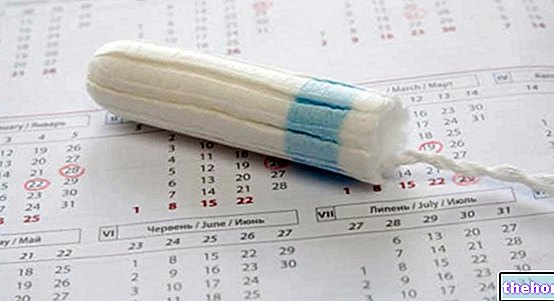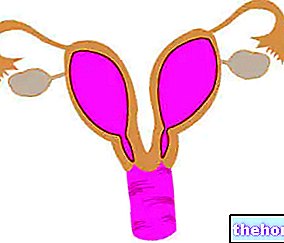Interrupted coitus: definition
Interrupted coitus is a natural contraceptive method which consists in the immediate and timely interruption of sexual intercourse a few moments before ejaculation. In an attempt to avoid fertilization, interrupted coitus therefore provides for the withdrawal of the penis from the vagina just before orgasm: during these moments, the man has to worry about directing the ejaculate away from the woman's external genitalia.

Interrupted coitus, in fact, turns out to be a highly risky sexual method that, only in appearance, is safe. In reality, in fact, neither a perfect self-control of the man, nor his experience in the sexual field, are sufficient to prevent fertilization. It is not uncommon that, before the actual ejaculation, a small quantity of seminal fluid can unconsciously to come out, therefore to reach and fertilize - in spite of himself - the ovum.
Contraceptive safety
Despite the fact that the unreliability of the method is now known, interrupted coitus seems to constitute an extremely "attractive" sexual habit, especially among young and very young people. Data in hand, it seems that as many as 40 million couples worldwide use interrupted coitus as a first-choice method of contraception.
- The contraceptive method fails in 18-22% of cases.
Either way, everyone is free to experience sexuality as they see fit. It is therefore up to the couple to decide the contraceptive method that best suits their needs and requirements, whether this is a risk-free or less safe contraceptive practice.
- Highly safe contraceptive methods for the prevention of unwanted pregnancies include: condoms, estrogen-progestogen birth control pills, minipill, vaginal ring, contraceptive patch and implantable contraceptives (IUD coil and implantable sticks).
- In addition to interrupted coitus, in the list of unsafe and unreliable contraceptive practices, we remember: natural contraceptive methods (Billings method, Ogino-Knauss method, basal temperature method), chemical (spermicides) and mechanical methods (diaphragm, cervical cap, vaginal sponges).
Why use it?
The inexperience and irresponsibility of a couple are not acceptable excuses for choosing interrupted coitus as the first-choice contraceptive practice.
However, interrupted coitus is generally practiced for various reasons:
- Increased sensitivity during intercourse: the condom can slightly reduce pleasure because it limits the genital sensory perceptions (especially male)
- Practicality of use: interrupted coitus does not require preparation or "training"
- Interrupted coitus does not cause the typical side effects of hormonal contraceptives (mood alteration, nausea, breast turgor, vaginal dryness, decreased libido, etc.)
- Zero economic cost
- It does not require a medical prescription
- Interrupted coitus does not trigger allergies to latex or to excipients (typical adverse reactions derived from the use, respectively, of condoms and birth control pills)
Risks
Before choosing interrupted coitus as the first choice method of contraception, it is good to consider the risk-benefit balance, and always ask yourself if it is really worth "taking the risk" by indulging in similar attitudes.
The regular or occasional use of interrupted coitus can cause:
- Unwanted and unexpected pregnancies
- Sexually transmitted diseases (does not protect against diseases such as gonorrhea, chlamydia, candidiasis, trichomoniasis, condyloma acuminata, genital herpetic infections, AIDS etc.)
- Post-performance anxieties and tensions
- Psychological stress and fear of being pregnant
- Increased risk of prostatitis and varicocele in men
From what is reported in the manual "Human sexual inadequacy", some researchers are convinced that the habitual use of interrupted coitus can increase the risk of premature ejaculation and erectile dysfunction.
Disadvantages
For many couples, interrupted coitus interferes with the pleasure and intensity of intercourse, as intercourse must be abruptly stopped by the man. For the same reason, interrupted coitus can be perceived as frustrating and unwelcome, both by the woman and by the man himself.
For the male, this "contraceptive" method requires "excellent control of his body, in order to" interrupt the relationship at the right moment.
Furthermore, a further and fundamental clarification must not be "omitted". After a first sexual intercourse - in which the practice of interrupted coitus is performed - it is possible that some spermatozoa remain embedded in the urethra. pregnancy.
Who can use it?
There is no "right" or "wrong" method of contraception. The important thing is that the planning of the sexual life is decided by both members of the couple.
What really matters is to savor eroticism, intimacy and sexual life in a calm and peaceful way, regardless of the chosen method of contraception. Interrupted coitus, as repeatedly stressed, is certainly not a safe contraceptive practice. However, this does not mean that a couple cannot choose it as their usual contraceptive practice. Sexually mature, married or cohabiting men and women may prefer interrupted intercourse, but they must accept the risks they may incur in an absolutely positive way.























-nelle-carni-di-maiale.jpg)




